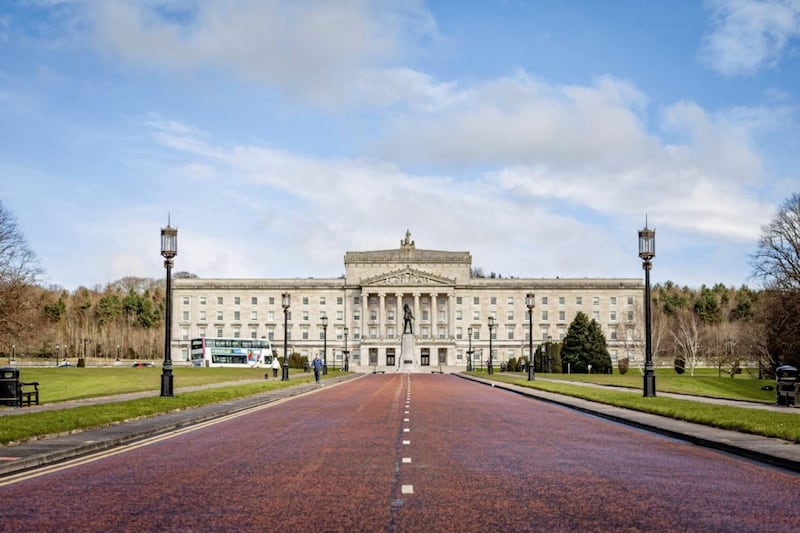My late maternal grandmother was a great one for celebrating the New Year and in particular the tradition of ‘first-footing.’ Her daughter, my aunt, carried that practice on until quite recently.
In my youth as a male with a crest of dark hair I was always welcome as the lucky ‘first foot’ across my grandmother’s door. Females and fair/redheaded first footers were regarded as harbingers of bad luck.
Part of the first foot tradition involved bringing a lump of coal, some sugar and salt. It would usually be followed with a wee dram of uisce beatha. Powers, I recall, was the preferred brand.
Sadly the practice of first footing has slowly ebbed from our lives like so many other customs. There’s no app that can replace first footing.
One tradition that hasn’t gone away at least for journalists, historians and political junkies is the annual trawl over newly released state papers from the various administrations in London, Dublin and Belfast. What we learn from these papers isn’t all that revealing as most things are in the public domain thanks to the slew of political biographies. What is surprising is the gossipy nature of some of the note-takers given that it is supposed to form some part of public record.
The note takers, whether civil servants, diplomats or politicians, are not prejudice free or neutral. Often they are telling their overlords exactly what they want to hear.
This year we learned that the late Eddie McGrady – ‘sotto voce’ – suggested Downpatrick as a location for a strand of the peace talks. We also learned that Mrs Thatcher refused to share a flight with a male panda as she thought it was a bad omen for politicians, even though pandas formed part of Chinese diplomacy for several hundred years and the cuddly creatures are considered lucky in China. Mrs Thatcher may have had a point though. In the 1970s several world leaders who were gifted two pandas fell from power including Richard Nixon and Ted Heath.
More interesting from the released Irish state papers was the claim of a former Israeli Ambassador that Ian Paisley had lobbied for arms from Israel. The then Irish ambassador who heard the claim put the matter down to a misunderstanding or misinterpretation. Others are likely to take a less generous view. Again it’s nothing more than hearsay but the diplomatic world revolves on titbits and tittle-tattle like parts of a jigsaw.
The revelation that loyalist terrorists objected so strongly to an alleged MI5 plot to kill the then Taoiseach Charles Haughey, that they took it upon themselves to notify the Irish government may surprise some. But it is proof, if proof was needed, that the Irish state has been engaging successfully with loyalists for many decades.
The papers must make for uncomfortable reading for so many individuals who are still active in politics. As our political process lies in tatters mainly because neither Sinn Féin or the DUP can rein in their supporters, it is unlikely that reporting on relatively recent historical allegations about the importing of arms, collusion or the setting up of former comrades is going to temper already inflamed passions on either side.
Survivors and victims must dread what the annual release of state files brings into the public domain. What governments or the security forces knew or didn’t know will only serve to open up old wounds and stir bad memories. One can’t imagine the feeling of abandonment and let-down that victims and their families must feel when the bloggers delve into the past with an insatiable appetite for the intrigue and rumour-mongering about turbulent events.
On the other hand those who enthusiastically favour the restoration of direct rule at Stormont could do well to look at the archives to see just what calibre of Tory mavericks got sent to Northern Ireland for duty.
Peter Bottomley, (now Sir) but then PPS to the babbling secretary of state Peter Brooke, actually suggested to officials that on the ugly monstrosity of the military border fortification outside of Newry that a ‘Welcome to the Killeen Checkpoint’ sign would have a ‘pleasingly aesthetic effect on travellers.’ As someone who was regularly pulled in at that checkpoint, no amount of signage would assuage my anger at its futile presence.
With the start of a New Year we are promised a fresh round of political talks. Perhaps those engaged in that process should set their faces towards the future rather than constantly glancing over their shoulders. That really would be a new tradition worth keeping.









